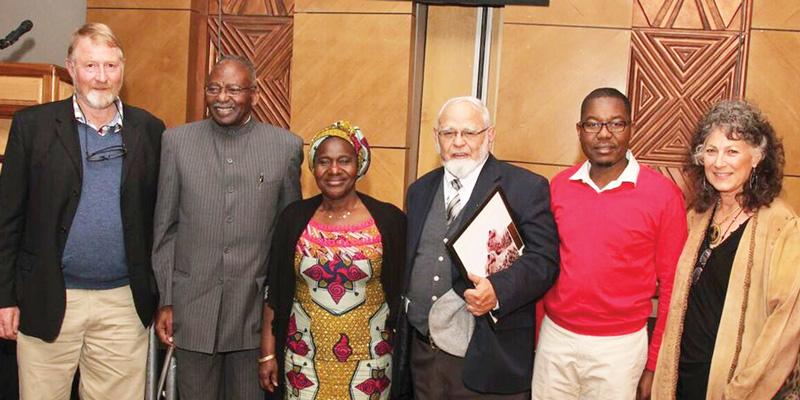
NaDEET celebrates ten years of conservation

NaDEET Director, Viktoria Keding.
Said Director of NaDEET Viktoria Keding, “As we celebrate the highlights of the past three years, NaDEET continues to be a fast-paced, high-output organisation. We completed our first three year 2011-2013 European Union funded action which increased NaDEET’s capacity to deliver environmental education. NaDEET reached out to several more communities through our expanded outreach activities and has embarked upon its second European Union funded action to intensify support to three local schools and communities.”
Speaking from a trustee’s perspective, Uda Nakamela said, “I am most proud of NaDEET’s commitment to the education of our children and youth, and for giving many youngsters who attend the training courses, a life-changing perspective which opens their eyes to issues which they have never been confronted to think about and to act upon. The value which NaDEET is investing into society with this work is just immeasurable but immensely great.”
According to the NaDEET annual report released this week, a comprehensive water audit with seven gauges, showed the centre pumped a total of 1345 cubic metres in 2013. In 2013, the NaDEET Centre’s average water usage use per person remained similar as in past years with 15.29 litres per person per day.
According to the annual report, auditing waste by kilogram showed that only a limited understanding could be obtained as recyclable materials such as paper and plastic weigh little but have a large volume. Food scraps were found to be the most significant and combustable form of waste. NaDEET said it will investigate this further to find meaningful ways of reduction.
On the energy front, only one 19 kilogram gas bottle was used with the bulk of the cooking carried out on solar or fuel-efficient stoves with a resultant 13,000 plates of food prepared. The NaDEET Centre and staff compound was 100% solar-powered and all hot water was 100% solar. The three single-cab vehicles clocked 30,000 kilometres spread evenly between the three, the report stated.
“NaDEET enjoyed a healthy financial year. Almost half of our total income for March 2013-February 2014 was sourced from the European Union and included pre-financing for both “action-bound grants” of which the second grant contract was signed in July. Percentage-wise curio sales are small, but local sales of our booklets are nearing cost-recovery and a new print run of selective booklets can be funded. The majority of funding was used for environmental education programmes. Administration costs remained high, said Keding.













































